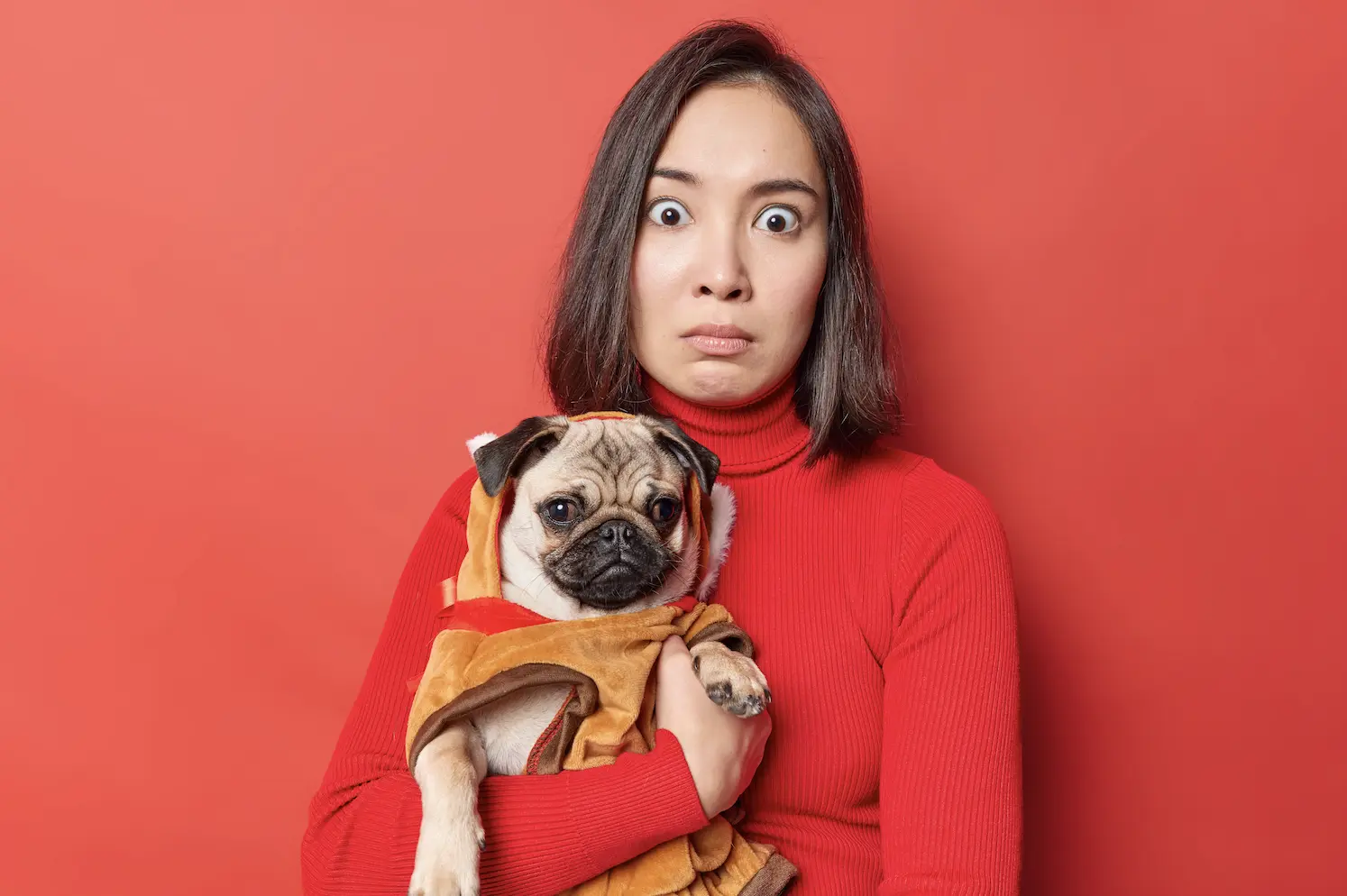Pugs can be comical and stubborn at the same time

Their expressive faces, quirky personalities, and playful nature make them naturally funny and endearing to many people. Pugs have a way of making their owners laugh with their unique mannerisms and sometimes clumsy behavior, which is why they are often described as comical or entertaining dogs.
Charming and goofy demeanor is one of the reasons they are so beloved by their owners.
Do Pugs' eyes fall out?
Pugs have large, prominent eyes that can be prone to injury, but their eyes don’t “fall out” easily. However, severe trauma or specific medical conditions can cause eye prolapse, which requires immediate veterinary attention.
When a pug experiences a condition known as proptosis, it means that the eye has been displaced forward beyond the eyelid. It’s important to note that if a pug owner responds promptly, there is a possibility of reattaching the eye. Proptosis occurs when the pressure on the eyelid causes the eyeball to move out of its socket, resulting in the eyelid appearing to dangle.
Are Pugs good for first-time dog owners?
Yes, pugs are generally good for first-time dog owners due to their affectionate, sociable, and easygoing nature. They are low-maintenance in terms of exercise and grooming, making them manageable for beginners.
Their adorable facial folds may require regular cleaning, which can vary from every other day to weekly or monthly, depending on the individual dog. Additionally, their nails tend to grow quickly, so it’s a good idea to trim them regularly to keep them comfortable.
Due to their shorter muzzles, pugs may experience some breathing difficulties, which can sometimes lead to snoring. However, for those truly interested in bringing a pug into their home, they can be a lovely choice for beginners.
What is the temperament of a Pug?
Pugs are known for being affectionate, friendly, and playful. They are also very loyal and tend to form strong bonds with their owners. They enjoy being around people and can be quite comical and charming.
Do Pugs have a lot of energy?
These type of dog has a moderate energy level. They enjoy playtime but are also content to relax and cuddle. Not as high-energy as some other small breeds.
Naturally playful, but it can be noticed that around the age of two, they might start to settle a bit. Of course, understand that they will still enjoy playtime and may have their zoomie moments, but it seems like this behavior might decrease as they grow older.
The short-nosed shape of the Pug skull can lead to some breathing challenges and related issues, which may result in ongoing discomfort and respiratory distress that could potentially affect their health. This could be a reason for settle a bit after specific period of time.
Do Pugs bark a lot?
They are not excessive barkers, but they will bark to alert their owners or if they are excited. Proper training can help manage and reduce unnecessary barking.
The dog is quite vocal and can make several unusual sounds.
How to deal with a stubborn Pug?
Use patience, consistent training, and positive reinforcement. Break tasks into small steps and ensure training sessions are engaging and rewarding.
The key to effective discipline lies in clearly communicating your expectations. Equally important is helping your Pug understand the reasons behind those expectations. By providing motivation and a rationale for following the rules, you’ll likely experience consistent success in your training efforts.
What treats work best for training Pugs?
Small, soft treats that are low in calories work best. Pugs love food, so using treats as a reward is very effective. High-quality, protein-rich dog food that is easy to break into small pieces is ideal for training.
What is the best age to start training a Pug?

The best age to start training a pug is around 8 to 12 weeks. Early training helps instill good behavior and socialization skills.
Where to find a reputable Pug breeder?
Look for breeders who are registered with reputable kennel clubs (like the AKC) and who can provide health clearances for both the puppy and the parents. You can also ask for recommendations from local pug clubs, veterinarians, or dog shows.
